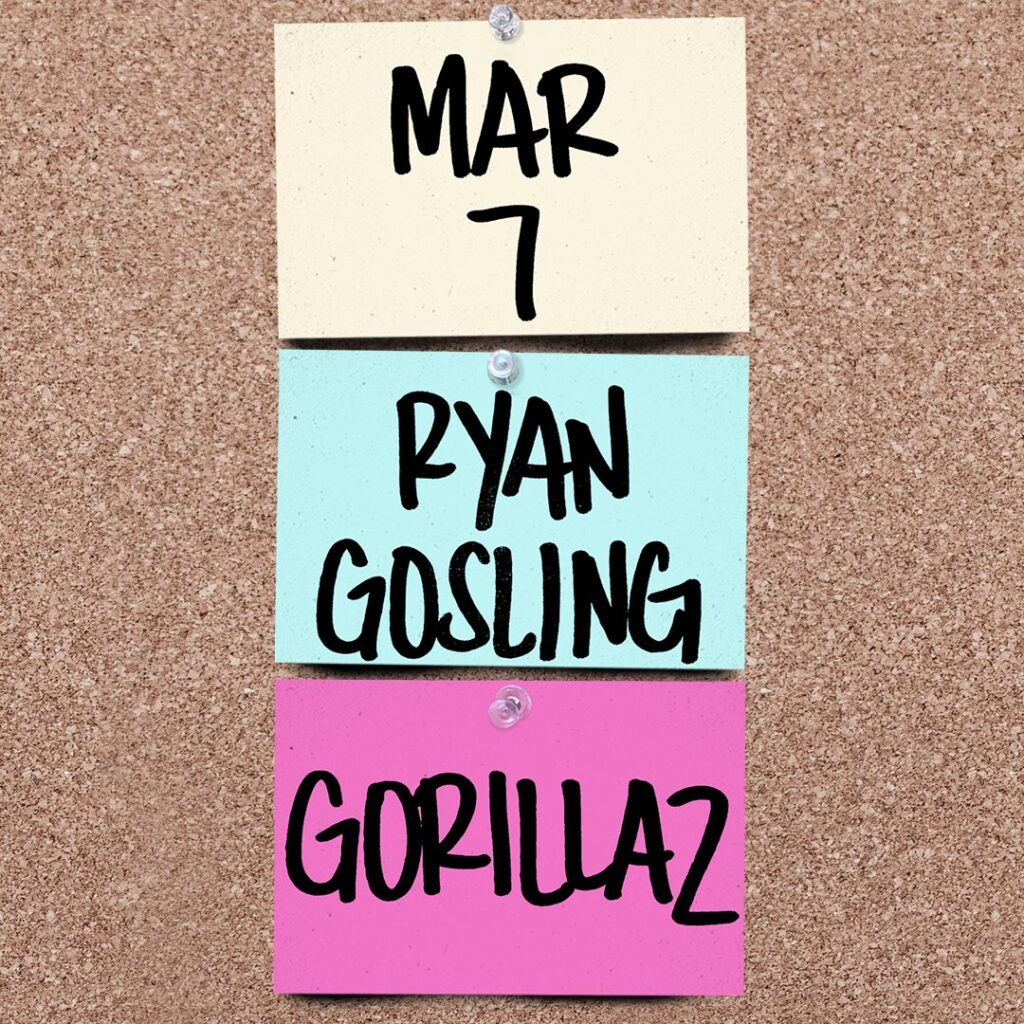
“There’s so many conflicting thoughts going through your brain when you’re going through that situation,” explains Benny The Butcher. “There’s so much pressure.” The veteran rapper is commenting on a powerfully bleak bar from his long-awaited official debut album, Everybody Can’t Go, out today on Def Jam: “Stashing money in the bathroom ceiling, my mom’s bitching/ Cooking work, the microwave beeping sound like a bomb ticking.”
Just like all the best Benny The Butcher lyrics, the line is a double entendre that forces you to empathize with the human beings behind drug transactions — the artist brilliantly towing the line between disaster and glory, walls being broken down and walls closing in. In an era of hip-hop where the proverbial scales have tipped so far that there’s now more songs elevating the addicts than the dealers, it’s clear the 39-year-old is inspired to push the plight and hustle of those with little option other than to turn cocaine into crack – via their moms’ microwaves – back into the epicenter of mainstream rap storytelling, much like Biggie did previously with Ready To Die or T.I. with Trap Muzik.
“When you get that fresh pack of work, you realize these drugs could literally make me or break me,” the artist and former dealer continues. The diamonds in his Montana Ave chain — an ode to the dangerous East Buffalo neighborhood where he says he didn’t just grow up, but “survived” — possess a radiant sparkle that bounces across our Zoom screen. “Sure, I could go sell this shit for triple the value, but I could also go outside and get caught by the police. Selling that brick is like a bomb ticking; it could either blow up in the streets or it could blow up in your face.”
It’s a pleasant surprise to hear such a stark piece of storytelling on an album at this echelon of the music business. Street rappers in the modern era tend to have their message diluted as soon as their signature hits that major-label contract, with an A&R who grew up in a mansion in Connecticut forcing them to put a Dua Lipa hook on their lead single or invent a dance that will give a nihilistic hood anthem a softer edge for the TikTok crowds. Some observers feared this could happen to Benny The Butcher, too.
Yet Everybody Can’t Go is sonically rooted in the gutter, filled with the kind of deliriously cruel Big L-esque punchlines (“I’m shitting around these pussies like an all gender restroom” is one example that Benny half-jokes will get him “canceled”) designed to give enlightened yuppies panic attacks on Twitter. I’m happy to report that the album, which has cameos from Lil Wayne, Snoop Dogg, and Peezy, is the type of project Def Jam might have released in the years before the Shiny Suit Era. It more than lives up to Benny’s claim that he’s keeping “underground grittiness alive,” even if this means it probably won’t set the charts on fire. Not that he cares too much: “With this project I want to wave the victory flag and show the people in Montana Avenue they can make it too. That’s all that matters.”
Few artists deserve this mainstream moment more than Benny The Butcher. Since emerging in the 2000s, his nostalgic brand of screw-face hood rap has kept the spirit of Kool G Rap’s verbose 4,5,6 alive and kicking, while he’s provided a consistent manual for those at the bottom of American society to better their situation: “Turn these bread crumbs into hedge funds” was the inspiring mission statement at the heart of the elegant Harry Fraud-produced “When Tony Met Sosa.” On now-classic records like Tana Talk 3, Stabbed And Shot, and Butcher On Steroids, the creeping dread of all the twisted boom-bap production spreads like a wave of terror through the streets, the resulting sound every bit as raw as the French Connection heroin that killed Janis Joplin and Jim Morrison in the 1970s. When he barks his ominous catchphrase (“The butcher coming, ni***””), it hits like terrified children warning their elders that Omar Little is approaching the stash house with a shotgun.
Crucially, Benny has a wicked sense of humor that cuts through all this brooding intensity, regularly spitting hilarious punchlines — like the time he said talking on phones about selling bricks of cocaine was dangerous due to federal wiretaps, so he therefore had to teach his crew how to communicate in sign language. A core member of the influential Griselda collective (alongside cousins Westside Gunn and Conway The Machine), Benny helped resurrect a surrealist street rap sound — even rapping about gold-plated Lugers, Henry Hill being a snitch, and “old paraphernalia” live on Jimmy Fallon — at a time where so many of his peers were more interested masking their voices with Auto-Tune mumbles or selling over-priced sneakers.
Having almost lost his life in a shooting in Houston back in 2020, it’s clear he’s cherishing every moment in the ascendency. However, in recent times, the Butcher’s rags-to-riches story has gotten lost a little under controversy, as revelations about supporting Donald Trump or the minutiae of a petty beef with former collaborator Freddie Gibbs have both dominated the news agenda. Likening Trump to a gangsta rapper, he tells me he simply told the truth about his political allegiances at a moment where his rap peers keep schtum.
“Trump don’t give a fuck about nothing,” Benny explains, “His agenda ain’t to kiss ass. But I definitely learned it ain’t smart to talk about your political candidate, as people will turn it against you. What I would say is this: So many people in hip-hop hit me up in private saying they’re voting for him. People nobody would think of!”
When I challenge him on this and say that Trump is simply an extension of the political principles of Ronald Reagan, the man whose War On Drugs played such a pivotal role in America’s enduring systemic racism, Benny agrees. Well, sort of. “100%. Their agenda is America and sometimes people don’t fit there,” he answers.” I don’t agree with a lot of the shit that goes on, but understand this: To be beautiful, you’ve got to be ugly too. There’s no such thing as beauty if we can’t identify what the fuck ugly is. There’s no joy without pain and there’s no sunshine without rain. I didn’t make that rhyme on purpose, I promise!”
With the imminent release of Everybody Can’t Go, Benny tells me he’s currently going through his villain era, something he talks about with a giddy excitement. “I came a long way from the bottom. No handouts. I did all this by the book. But look: Remember when [the wrestler] Sting was the good guy for so long and then he suddenly turned bad? I feel like the bad guy Sting right now in the WCW, moving my way up the league to the top of the pile. I am the old Sting, with black and white war paint on my face.”
To celebrate the release of the new project, I went deep with Benny. We talked about major labels mistreating Black artists financially, the future of Griselda, growing up without stable role models, being a refined gentleman, and more. Below, stream the album and read our conversation, which has been lightly edited for clarity.
I feel like the essence of this record is the lessons you teach, especially when you say “trust is more valuable than love” on “TMVTL.” At what moment in your life did you realize trust was more powerful than love? And why was it important to put an ambitiously cinematic, three-arc piece of storytelling like that on this album?
BENNY THE BUTCHER: A lot of people try to hang their thoughts on love, right? So long as they love you, they feel they can do whatever they want to you, and it leaves no responsibility to be a good human being. This album was me working out that I don’t need you to love me anymore, I need to trust you — to trust that you are going to be there for me and hold up your part of the bargain.
You know, stories got lost in rap. That is why whenever you hear a rapper do a concept storytelling record, it sticks out so much. When we used to listen to rappers, it was a road map. Look at Biggie’s “10 Crack Commandments.” I could go on and on. These stories were roadmaps on how you should move and what you should stay away from. Yes, there was glorification of violence, but it was much more like a list of do’s and don’ts. Nowadays in rap, it’s just do’s. The people are hungry for more storytelling, so I am bringing it back.
“Jermanie’s Graduation” is a gorgeous way to open the album and I love how the piano sounds like it’s crying out in joy. “I know every side to drug abuse, my moms was an addict” – those lines really floored me. Talk to me about what it was like being a kid and seeing Buffalo transform in the crack era; did it all feel like part of a calculated plan?
BENNY THE BUTCHER: Honestly, it didn’t feel like [a plan] until I got much, much older. When it’s going on and you’re caught up in it, it feels like the norm. I used to think that everyone’s mother did drugs! If we met someone’s mother in our hood who wasn’t a junkie then, well, that was really different to us. When I started traveling across America more and more, that’s when I realized, damn, the way Buffalo is really isn’t normal. When my moms brought me back from the hospital to Montana Avenue, there was violence and drugs everywhere. So, it was only natural I became a part of that too. But I managed to come out of it, like only a few of us did! When you get to my age and reflect, you realize that rapping is how you survived. When my guys were out running the streets, I was in the studio spitting bars. Hip-hop really saved me.
You’ve got this bar on “Buffalo Chicken Club” where you say “Left mine in escrow and I never touch it/ ‘Cause when Pac died, he ain’t even have a hundred.” It’s fascinating because from 2Pac to Jimi Hendrix, so many of the Black musicians we consider legends, they died with fuck all money in their pocket; they were exploited financially. Why is it so important that Benny The Butcher reverses that cycle?
BENNY THE BUTCHER: So I can show the people that we’ve learned from those guys! Those are the biggest Black stars ever in music and even they didn’t have their money together. They would want us to learn from that, right? How they died with hardly any money was teaching us a lesson about the industry, even in their deaths. You have to be about your business and have it together, period.
On your new song “Big Tymers” you rap about coming from the mud and how that means you’ll never be humble. When you make something out of nothing in the creative industries, you’re often expected to be humble around your middle to upper class peers, which is such classist bullshit.
BENNY THE BUTCHER: For sure. You know, when you’re from the bottom, you should never be humble when you do something incredible or great. You should stand on top of the mountain and scream it out 24/7! Success is a mirror that you shine in other peoples faces, and they see themselves in that mirror and they emulate that. Your win is their gain. Some people take our confidence the wrong way, but they shouldn’t: never marginalize yourself for these people’s comfort! No one was marginalising themselves for me when I was fucked up eating pork and beans and hot dogs and I was living in the hood, unable to pay my rent. No one was bothered about me being humble back then. If my success bothers you, or me boasting about my accomplishments makes you uncomfortable, then that says more about you than me.
Not enough people talk about “The Iron Curtain” from Pyrex Picasso. I love how goofy that Soviet era-channeling beat [produced by Chop-La-Rock and Rare Scrilla] sounds. You spit the bars: “I’m Black royalty with Black lawyers/ I ate off the black market, so good luck blackballing me.” Let’s say they do blackball you tomorrow, would you agree the one thing that separates you and other rappers is you’re able to walk right back on the block and continue where you left off? You’re not afraid of going back there.
BENNY THE BUTCHER: First off, let me thank you for pointing that out, as that is really important to me! These niggas are scared to start at the beginning. I don’t mind doing the basement work or the cleanup work because that is what got me here! I get excited when it comes to the cleanup work. I am like “Oh shit!” as that is where the stars are born and that’s where the legends are made. That is the beginning phase, where you separate the men and the boys, who is made for this and who is not. These niggas are scared to start at the beginning. You got to get back on the turf!
On the flipside though, when you see what happened to Nipsey Hussle and Young Dolph, both getting murdered after letting their guard down in their hometowns, do you have to have eyes in the back of your head when you go back to Buffalo?
BENNY THE BUTCHER: Of course. They hate you the most at home, as that success mirror I spoke to you about earlier, well, it’s got a double effect on them, as you’re from where they’re from. You gon’ do things they haven’t done, so you receive double the love, but also double the hate. They love you so much they hate you. They hate you so much they love you. People want to be famous too. They want to be down with you, but when they can’t phone you, take a flight with you, or hang out at the strip club with you, then they want to be your opps. Sadly, that’s just how it goes.
What can you tell me about the future of Griselda? I feel like you guys need to do more group albums if you’re going to solidify yourself as one of the all time collectives.
BENNY THE BUTCHER: I agree. We need that! To really cement our legacy, we need two or three more projects with Benny, Westside Gunn, and Conway The Machine as the core members. If we do that over the next two years, I believe we then stand tall with the greats. We’ll become one of the greatest groups ever, easily. The next Griselda album is going to have everyone on there from Boldy James to Stove God Cooks, Rome Streets, artists from Drum Work [Conway’s label], and the Black Soprano Family. I want everyone to go on one giant tour, too.
On “One Way Flight” you spoke about whether the flower was more important or the soil that grows it. Is that what Benny the Bucher and Griselda are to hip-hop culture: the soil? You gave other street rappers something to blossom from.
BENNY THE BUTCHER: If we aint do nothing else, we did force these rap niggas to be better rappers. I showed them the mirror. I did a lot with less, so I am definitely the soil. I do the groundwork, I do the basement shit. I let these other niggas do the pretty shit, I let these niggas be the tulips and the roses, but I am the rich soil that feeds off that and helps it grow. I think people know I represent that. I think people know me going to Def Jam is real hip-hop going to Def Jam. I think they know. I hope they know.
You’ve been in the game a long time. When you hear rappers making songs mocking their rival’s dead friends or lines about smoking Tookah packs [a reference to a dead teenager in Chicago], do you ever feel like things went too far?
BENNY THE BUTCHER: I feel like it definitely went too far with that. I don’t condone any of that. But what the shorties do [in drill], the shorties do; that’s their own thing. But I am sure people don’t agree with the shit I say either. As an older guy in this, sometimes it is like, “Whoa, what are we doing?” But when they say a white guy profits off this shit, or people say the label pushes the agenda for people to make the Black-on-Black crime music and the drug dealer music, I am not so sure I believe that. If “We Are The World” music was selling and tearing up the charts, the labels would chase it. They chase what is hot! They don’t pick and choose what is hot; that is down to the customer and what they want to hear. Nobody is ready for that convo. People want to hear the ignorant shit. Just like Hov said, this is the ignorant shit you love. Just like Pac said, “My attitude was fuck it and you motherfuckers loved it.” If gospel was the number one genre tomorrow, these people would blackball me like a motherfucker! When people stop having an appetite for destruction, that is when we will hear change in hip-hop.
And finally, do you ever see yourself retiring from rap? I hope we see Benny The Butcher cracking jokes in the booth when he’s 70.
BENNY THE BUTCHER: I ain’t goin’ nowhere. The brain is a muscle. So as long as my brain is working, I ain’t going nowhere. I might stop doing shows or features, but rapping? Never. Only time I stop is if I run out of shit to talk about. They like to paint hip-hop as a young man’s game, but it isn’t that anymore. It is a refined gentleman’s game now, and I’m going to milk this shit forever.



